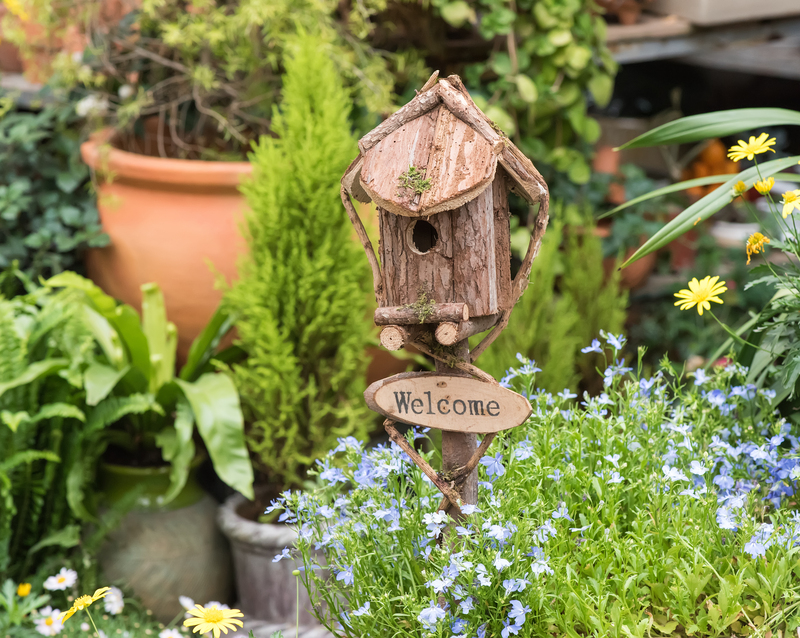Smart Waste Reduction Strategies for Your Household
Are you looking for effective ways to manage your household waste, lower your carbon footprint, and save money? Smart waste reduction strategies for your household are essential for anyone aiming to live more sustainably and responsibly. With the rising concern of overflowing landfills and environmental pollution, every home can make a significant impact by adopting simple, practical solutions for waste management. In this comprehensive guide, we'll dive deep into practical and actionable waste reduction ideas that you can easily apply in your daily life.

Why Is Household Waste Reduction Important?
Households contribute a substantial portion of the world's garbage. Landfills are filling up, and improper disposal of waste harms our planet's soil, air, and water. Reducing household waste lessens pollution, preserves natural resources, and supports a circular economy. Waste minimization at home can also lead to significant cost savings and improved health for your family and community.
Environmental Benefits of Reducing Waste at Home
- Less waste heading to overflowing landfills and incinerators
- Lower greenhouse gas emissions
- Reduced need for new raw materials
- Protection of ecosystems and wildlife
- Lower pollution in water, air, and soil
Top Smart Waste Reduction Strategies
Ready to adopt smarter habits? Here are the most effective smart waste reduction strategies for your household:
1. Conduct a Waste Audit
Before you can make sustainable change, you need to understand what you throw away. Spend a week collecting and categorizing your household waste. Identify what types of garbage make up the majority--food scraps, packaging, paper, plastics, etc. This will help you target your efforts and see where the biggest reductions can be made.
- Sort trash into recyclables, compostables, and landfill.
- Take note of common items you dispose of.
- Establish your baseline waste output for future comparison.
2. Embrace the 5 R's: Refuse, Reduce, Reuse, Recycle, Rot
- Refuse: Say no to unnecessary items, such as single-use plastics and promotional freebies.
- Reduce: Purchase only what you need to avoid impulse buys and food spoilage.
- Reuse: Opt for products that can be reused or repurposed.
- Recycle: Follow local recycling guidelines to keep materials out of landfills.
- Rot (Compost): Compost food scraps and yard waste to create valuable fertilizer.
The 5 R's are the foundation of any sustainable, effective waste reduction approach.
3. Smart Shopping and Bulk Buying
Making conscious purchasing decisions is one of the easiest and most impactful waste reduction ideas for your household. Here's how:
- Bring your own reusable bags and containers for groceries.
- Choose products with minimal or recyclable packaging.
- Buy in bulk to decrease packaging and reduce frequent trips to the store.
- Select durable, long-lasting goods over disposable items.
- Avoid single-serve and individually wrapped items.
By being a mindful consumer, you reduce the waste created before it even enters your home.
4. Compost Organic Waste
Composting is one of the best smart waste management strategies for households. On average, food scraps and yard trimmings make up over 30% of residential waste. Composting these materials:
- Keeps them out of landfills (where they create harmful methane gases)
- Produces nutrient-rich soil for your garden
- Reduces the need for chemical fertilizers
Start with a simple compost bin or pile. Add fruit and vegetable scraps, coffee grounds, eggshells, and yard waste. Avoid composting meat, dairy, and oily foods in basic home systems, as these attract pests and decompose slowly.
5. Efficient Meal Planning & Mindful Food Storage
Food waste is a major household problem--both environmentally and economically. Smart waste reduction for your household starts in the kitchen:
- Plan meals ahead to buy only what you need.
- Store food properly in airtight, labeled containers to extend freshness.
- Freeze surplus fruits, vegetables, and leftovers.
- Get creative with leftovers--transform them into new meals or snacks.
- Understand expiration dates: "Best by" doesn't always mean spoiled!
These habits not only cut down waste but also save your family money.
6. Reusable Products: Ditch Single-Use Items
- Swap paper towels for reusable cloth towels.
- Use glass or stainless-steel water bottles instead of plastic ones.
- Carry reusable coffee cups and straws.
- Opt for rechargeable batteries.
- Invest in long-lasting cleaning supplies and personal care products.
Single-use plastics are among the top contributors to household waste. Making a few smart swaps can dramatically reduce what you throw away.
7. Set Up an Effective Recycling System
Making recycling easy and accessible at home is crucial:
- Create clearly labeled bins for paper, cardboard, glass, metals, and plastics.
- Learn and follow your local recycling rules--improper items can contaminate whole batches.
- Rinse containers before recycling to avoid odors and pests.
- Drop off specialty recyclables (e-waste, batteries, textiles) at community centers or collection events.
8. Responsible Hazardous Waste Disposal
- Avoid pouring chemicals, paints, or medications down the drain or in the trash.
- Utilize community hazardous waste collection programs.
- Donate or return unused pharmaceuticals to proper facilities.
9. Upcycling and Creative Reuse
- Repurpose glass jars as storage containers or planters.
- Turn old clothes into cleaning rags or DIY crafts.
- Use cardboard boxes for organization or kids' projects.
- Repair and refurbish broken furniture or electronics instead of discarding them.
Upcycling extends the life of items and sparks creativity, making waste reduction fun and rewarding.
10. Donate, Sell, or Swap Unwanted Goods
One household's waste could be another's treasure. Whenever you're decluttering:
- Donate gently used clothes, books, toys, and appliances to local charities.
- Organize a community swap or garage sale.
- Sell valuable items online using apps or social media groups.
These actions help someone in need, keep usable items out of landfills, and might even earn you some extra cash.
Tech Tools: Smart Waste Reduction at Home
Smart Waste Bins & Trackers
Technology now enables efficient waste management at home:
- Smart trash cans can automatically separate recyclables and compostables.
- Apps help track your waste reduction progress.
- Sensors alert you when bins are full, reducing unnecessary collection trips.
Combining smart devices and apps can offer useful insights and keep your household motivated.
Online Platforms and Local Networks
- Join community groups focused on zero-waste living and sustainable swap events.
- Use sharing economy platforms to borrow or rent infrequently used items.
- Access online courses, blogs, and forums for the latest smart home waste reduction strategies.
Make Waste Reduction a Family Affair
Sustainable living is easier--and more fun--when the whole family gets involved. Try these tips:
- Assign recycling and composting roles to kids.
- Create friendly competitions to see who can generate the least trash.
- Start a family project upcycling household materials.
- Incorporate waste education into mealtime or story time.
Instilling good habits early ensures the next generation continues the pursuit of a less wasteful world.
Common Mistakes and How to Avoid Them
- Wishcycling: Placing non-recyclable materials in recycling bins, hoping they're accepted. Always check local guidelines.
- Complacency: Stopping your efforts after initial enthusiasm. Consistency is crucial for lasting change.
- Lack of convenience: If bins or containers are not easily accessible, waste will pile up. Place sorting solutions in user-friendly spots.
- Ignoring food waste: Overbuying or improper storage are top culprits. Stay mindful at the store and in the kitchen.

Frequently Asked Questions on Smart Waste Reduction at Home
How can I convince reluctant family members to participate?
- Share facts about the benefits and impact of household waste reduction.
- Involve them in setting up systems and buying new reusable products.
- Celebrate small victories and progress together.
What is "zero waste living," and do I need to be 100% zero waste?
- Zero waste living is about striving to send no trash to the landfill. While it's a worthy goal, any reduction is a positive step!
- The key is progress, not perfection. Implement smart waste management strategies at your own pace.
Can waste reduction really save me money?
- Absolutely! Buying less, reusing, and repurposing keeps more cash in your pocket.
- Smart waste reduction strategies for your household decrease utility and disposal fees, and often leave you needing to shop less frequently.
Conclusion: Start Your Smart Waste Reduction Journey Today
Incorporating smart waste reduction strategies for your household is a meaningful way to protect the environment, build healthy communities, and save money. Audit your waste, embrace sustainable alternatives, and make each step a family effort. Remember, every small action adds up to big change over time.
Ready to cut your household garbage, live more sustainably, and inspire others? Start adopting these smart strategies today, and watch as your home becomes cleaner, greener, and more resourceful than ever before.
Let your journey toward a zero waste home begin--one smart decision at a time!